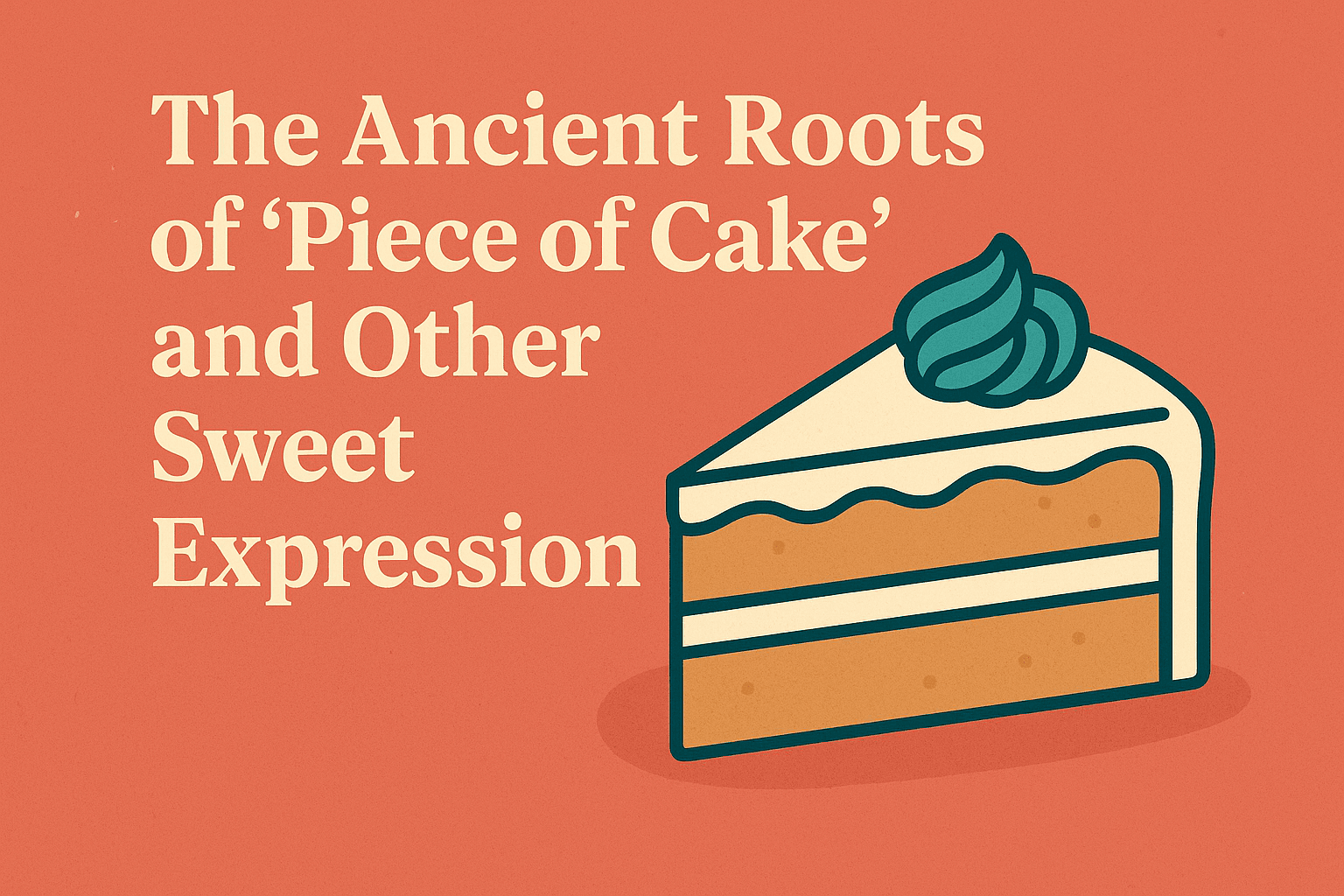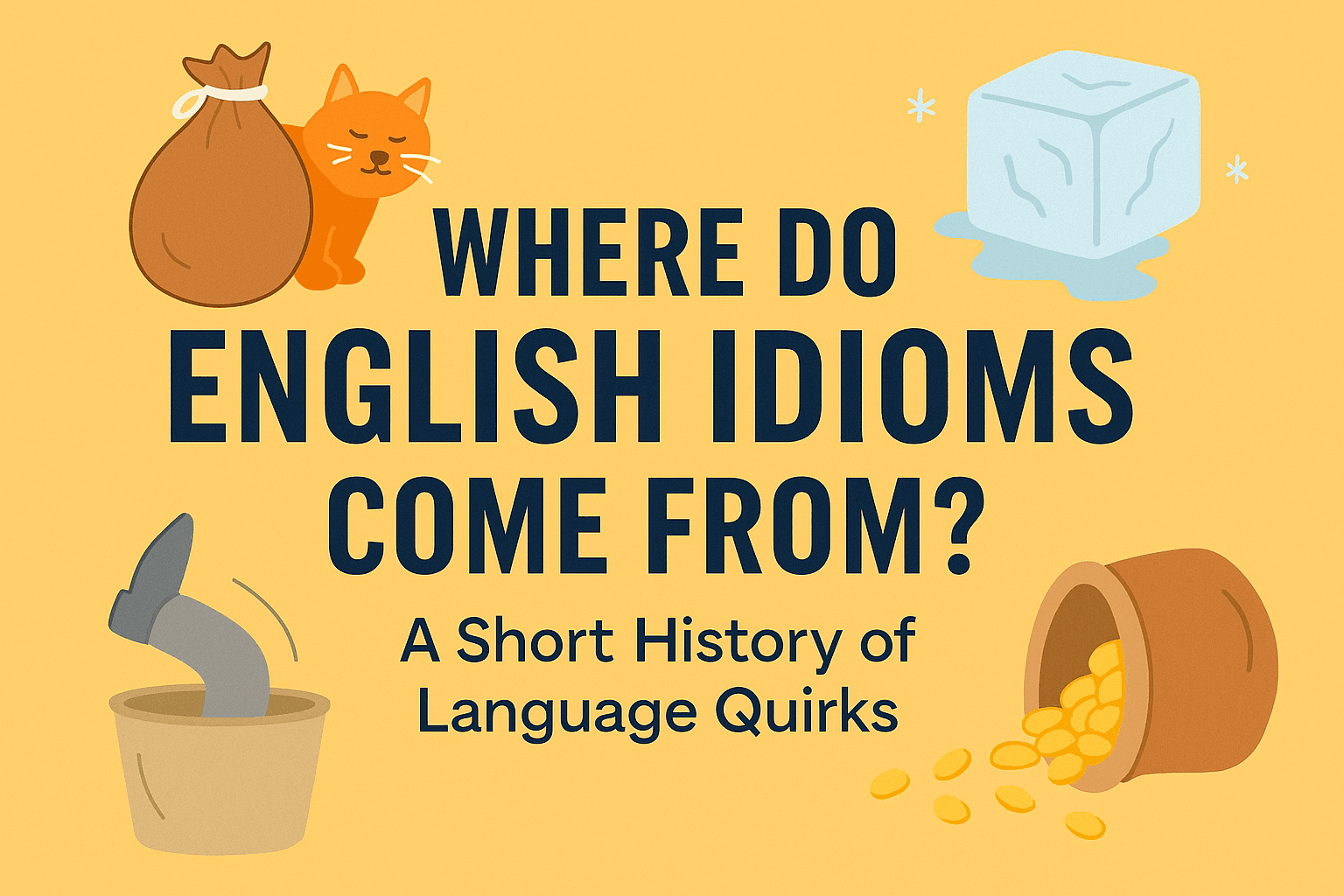English is full of idioms that make life sound a lot more delicious—“piece of cake,” “icing on the cake,” “have your cake and eat it too.” These expressions are everywhere, especially when describing ease, reward, or indulgence.
But have you ever wondered where these sweet sayings came from? How did cake become a metaphor for something easy or pleasurable?
In this article, we’ll explore the surprisingly ancient and symbolic origins of cake-related idioms, and how our love for desserts has shaped the way we talk.
Why Is Cake So Popular in Language?
Cake has long been associated with celebration, luxury, and reward. Historically, cakes were not the everyday treats we know today. They were reserved for special occasions, made with rare ingredients like sugar, butter, and eggs—expensive luxuries in ancient and medieval times.
That sense of rarity and indulgence helped turn cake into a powerful symbol of joy, success, and simplicity in Western culture.
Origin of the Phrase “Piece of Cake”
The idiom “piece of cake” means something that’s very easy to do—a task requiring little effort.
Historical Usage
The first known usage of the phrase dates back to the 1930s, in American slang. It gained popularity during World War II, when fighter pilots used it to describe easy missions.
“It was a piece of cake” — a way of saying it was a smooth operation.
But its deeper cultural roots go back much further.
Possible Ancient Influences
While the idiom itself is modern, the symbolism of cake as a prize dates back centuries.
1. The Cakewalk
In 19th-century America, enslaved African Americans created a dance called the cakewalk, where couples competed for a cake as a prize. The best performance won—literally taking the cake.
This evolved into the idiom “take the cake,” meaning to win, or (in sarcasm) to do something outrageously wrong.
🔗 More on the cakewalk’s cultural history
2. Ancient Roman Celebrations
Romans served sweetened bread-like cakes during festivals and weddings. These early cakes were symbols of abundance and blessing.
The link between sweet food and celebration began thousands of years ago and persists today in our idioms.
Other “Sweet” Idioms and Their Origins
1. “Icing on the cake”
Meaning: Something extra that makes a good thing even better.
Origin: Literal icing was added to cakes to enhance flavor and appearance—making them more desirable. The idiom emerged in the 18th–19th centuries as a metaphor for bonus value.
Example: “The free upgrade was icing on the cake.”
2. “Have your cake and eat it too”
Meaning: Wanting to enjoy two mutually exclusive things.
Origin: Dates back to the 16th century. The earliest version was “You cannot eat your cake and have it too.” In other words, once the cake is eaten, it’s gone. You can’t both possess it and consume it.
Famous use: Thomas Cromwell used the phrase in a letter in 1538.
Example: “She wants freedom but also complete control—it’s having her cake and eating it too.”
3. “Sugarcoat”
Meaning: To make something unpleasant seem more palatable.
Origin: Comes from medicine—pills used to be coated with sugar to make them easier to swallow. The phrase entered metaphorical use in the early 20th century.
Example: “Don’t sugarcoat it—just tell me the truth.”
🔗 Etymology source: Online Etymology Dictionary
4. “Sweeten the deal”
Meaning: Add something extra to make an offer more appealing.
Origin: Business and trade lingo, with roots in literal sweeteners used in goods. By the 1800s, it was used metaphorically.
Example: “He sweetened the deal with a bonus.”
How Food Shapes Language
Food—especially desserts—is an emotional and cultural touchstone. That’s why food-based idioms are:
- Memorable – We all eat and enjoy food.
- Relatable – Food connects people across cultures.
- Evocative – Desserts, in particular, represent reward, pleasure, and celebration.
English isn’t alone. Other languages also use sweet imagery in expression:
- German: Zuckerschlecken (literally “sugar licking”) – used sarcastically to mean something not easy.
- French: C’est du gâteau (“It’s cake”) – their version of “piece of cake”.
🔗 Check out more idioms with food at Dictionary.com
Modern Usage and Pop Culture
“Piece of cake” and related idioms are everywhere in pop culture:
- TV Shows: “It’ll be a piece of cake” is often used before a task that turns out not so easy.
- Video Games: Difficulty settings labeled as “Piece of Cake” (easy mode).
- Song lyrics, books, even comedy sketches have leaned into cake as a symbol of ease or luxury.
These idioms have outlived their original contexts, becoming timeless phrases in English.
Final Thoughts: Language, Like Cake, Is Rich with Layers
From ancient Roman feasts to American slang, “piece of cake” and other sweet expressions have long connected pleasure with communication. They remind us that language isn’t just about clarity—it’s about culture, memory, and a little fun.
So next time something feels easy, sweet, or just plain satisfying, don’t be surprised if your brain serves up a dessert-themed idiom. That’s just how English works—layered, rich, and always ready to sugarcoat life’s experiences.




